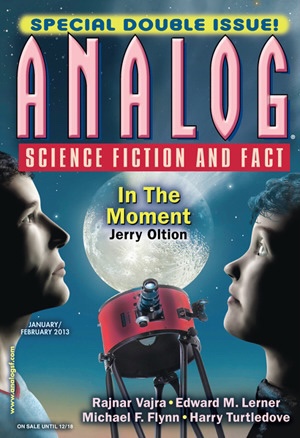Descartes’s Stepchildren by Robert Scherrer
This was a very Analog-esque story. Scientists discover something incredible but the consequences are more messy and complicated. Here we delve into a test for human consciousness.

John and his research partner have developed a special MRI scan that can detect where the consciousness lies in the brain. The twist is that their tests show that about 20% of human test subjects are not really conscious. This discovery hits Johns partner hard, because according to the test his wife’s brain shows no activity in the consciousness-center. She is a what is named a Blank in the story. John wants to publish their results anyway and the world changes drastically when their findings become public knowledge.
A test becomes widely available and many people start to test themselves, their kids, future employees and so on. The Blanks quickly become second-rate citizens unable to get a job or stay in a relationship. Many kids ends up as orphanages because their parents don’t want them. John gets rich for his patents on the tests, but he has increasingly moral qualms about the whole thing.
This story has a lot to unpack. There are plenty of philosophical and existential questions to ponder with the concept of human consciousness. I like the general premise of this story, but the consequences to the greater society are only dealt with in broad headlines since the primary focus is on John. Also, I found that their test was a little too easily accepted as scientific fact. Of course these simplifications are needed for the story to work, but I wasn’t totally convinced of what happened. My reading experience might have been hampered a bit by reading “The Algorithms for Love” the same day. It has a completely different approach to dealing with humans free will, but managed to create a more personal depth to it, whereas this story had a broader and distanced perspective.
Read in Analog January/February 2013
Rating: 3